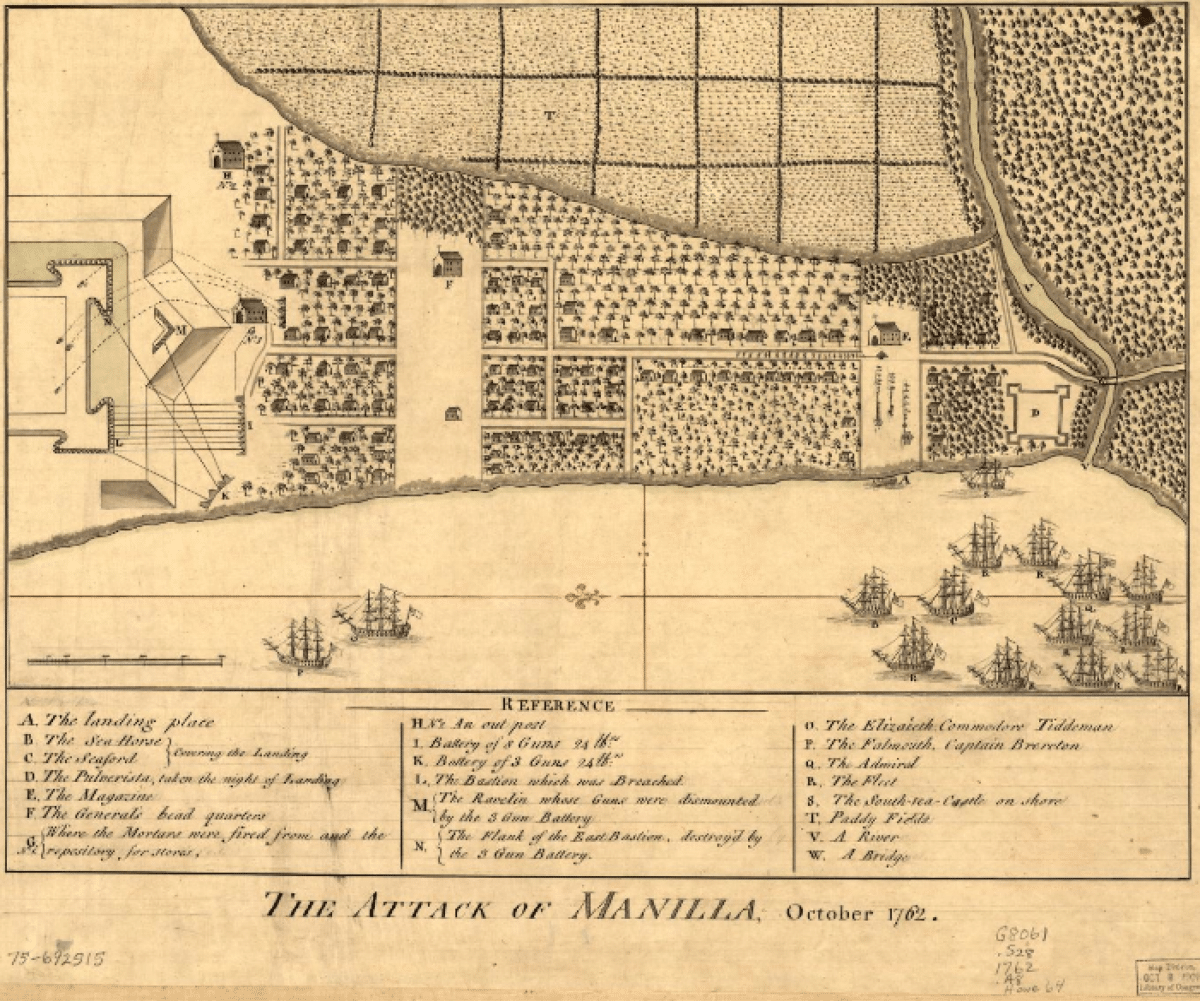September 23, 1762: The British invasion of Manila

The British invasion of Manila / Photo from the Library of Congress
One of the most obscured events in Philippine colonial history occurred on September 23, 1762. On that day, a powerful British naval force landed marines and infantry soldiers in Manila.
Due to poor communications at that time, the Spanish military and civilian leadership had little or no information on the state of war that existed between Great Britain and France. Spain had a family compact with France, which meant that Spain was also at war with Great Britain.
The British had the best navy in the world, so the British naval leaders decided to be opportunistic. The British navy launched two expeditions to capture valuable Spanish colonies.
The first expedition originated in England and proceeded to Havana, Cuba. Havana was the most important Spanish colony and port in the Caribbean. The second naval expedition began in the British colony Madras, India, and headed to Manila. The Philippines was the valuable Spanish colony in Asia. The British were able to capture both ports, but they held limited territory outside Havana and Manila.
The war between Great Britain and the French and Spanish alliance was called the Seven Years’ War. The Seven Years’ War affected many nations in Europe, Asia, North America, Central America and the Caribbean. The war was also known as the French and Indian War in North America. The war lasted from 1756 to 1763.
The Seven Years’ War was initially fought in North America. The British and its Indian alliances fought the French and its Indian alliances in Western Pennsylvania, New York and Canada. After many years of bloody fighting, the British were able to win the war.
The peace negotiations were held in Paris, France. The British naturally held the upper hand. The British offered to return Havana and Manila to Spain, but there was a steep cost. The British wanted the Spanish colony of Florida in North America. At that time, Florida was sparsely populated and significantly larger than Florida today.
Spain agreed to the British’s terms. On February 10, 1763, the Treaty of Paris was finalized. The return of Havana was detailed in the treaty. The Philippines and Manila were not listed by name in the treaty.
The Philippines was included in Article Twenty-Three which specified that territories “…which are not included in the present treaty…” The Philippines was returned to the Spanish on May 31, 1764, after 20 months of British rule.
Following the Seven Years’ War, the British controlled all North America east of the Mississippi River, from the Florida Keys to the northern areas of Canada.
Dennis Edward Flake is the author of three books on Philippine-American history. He is a Public Historian and a former park ranger in interpretation for the National Park Service at the Eisenhower National Historic Site in Gettysburg, PA. He can be contacted at: flakedennis@gmail.com

